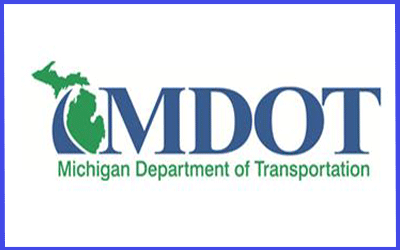DNR Get Involved – June 2021
|
|||||||
DNR Get Involved – June 2021
|
|||||||
|
|||||||
| DNR COVID-19 RESPONSE: For details on affected DNR facilities and services, visit this webpage. Follow state actions and guidelines at Michigan.gov/Coronavirus. |
|
|||||||
DNR Get Involved – June 2021
|
|||||||
|
|||||||
| DNR COVID-19 RESPONSE: For details on affected DNR facilities and services, visit this webpage. Follow state actions and guidelines at Michigan.gov/Coronavirus. |
|
Media Contact: Lynsey Mukomel FOR IMMEDIATE RELEASE: AG Nessel Reminds Michiganders to Research Home Improvement OffersLANSING – Michigan Attorney General Dana Nessel is sharing important reminders as many Michiganders prepare for home improvement projects and the summer months create opportunities for scammers. Her latest Consumer Protection video is the final installment in Nessel’s If someone comes to your door to offer repairs or improvements, do your research before committing to anything. “Anytime someone approaches you with a home improvement deal that seems too good to pass up, or they want to you act right away, you should be skeptical—especially when you aren’t sure your home actually needs repairs,” Nessel said. “In addition to doing your homework, try getting quotes from multiple companies to determine reasonable costs for the work and remember you can say ‘no’ if someone is becoming too pushy with an offer.” Michiganders should especially be on high alert right after a big storm that’s likely to cause damage. Clean-up days are primetime for scammers who like to prey on homeowners looking for help with unexpected repairs. Additional tips can be found in the Department’s Consumer Alert focused on advice for homeowners. Last month, Nessel shared ways to identify thieves who will try to trick people into giving out their personal information Previously, Nessel walked through how to verify a license before hiring for home projects, reminded people to vet their tax preparers and she shared tips for spotting COVID-related scams. The videos have been posted periodically on the Department’s Facebook, Twi Additional resources are always available by visiting the Attorney General’s Consumer Protection webpage. |

Press Release FOR IMMEDIATE RELEASE: June 7, 2021 CONTACT: Chelsea Wuth, 517-241-2112, WuthC@michigan.gov First case of hantavirus reported in Michigan Michiganders reminded to take precautions around rodents LANSING, Mich. — The Michigan Department of Health and Human Services (MDHHS) and the Washtenaw County Health Department are investigating the first confirmed human case of Sin Nombre hantavirus detected in Michigan. An adult female in Washtenaw County was recently hospitalized with a serious pulmonary illness from Sin Nombre hantavirus. The individual was likely exposed when cleaning an unoccupied dwelling that contained signs of an active rodent infestation.
Hantavirus was first discovered to be responsible for hantavirus pulmonary syndrome (HPS) in ill patients in the southwest United States in 1993. HPS has since infected people throughout the U.S. and the Americas. Hantavirus infections are associated with domestic, occupational or recreational activities that bring humans into contact with infected rodents. Most cases have been identified in adults and tend to occur in the spring and summer.
“HPS is caused by some strains of hantavirus and is a rare but severe and sometimes fatal respiratory disease that can occur one to five weeks after a person has exposure to fresh urine, droppings or saliva from infected rodents,” said Dr. Joneigh Khaldun, chief medical executive and chief deputy for health at MDHHS. “Anyone who comes into contact with rodents that carry hantavirus is at risk for HPS and healthcare providers with a suspect case of hantavirus should contact their local health department to report the case and discuss options for confirmatory testing.”
Humans become infected when freshly dried materials contaminated by rodent excreta are disturbed and inhaled, get into breaks in the skin or on mucous membranes or when ingesting contaminated food or water. Bites from rodents can also transmit hantavirus. The highest risk of exposure takes place when entering or cleaning rodent-infested structures. There are not any documented person-to-person cases of hantavirus transmission in the U.S. Symptoms of HPS can be non-specific at first and include fever, chills, body aches, headache and gastro-intestinal signs such as nausea, vomiting, diarrhea and abdominal pain. The illness can progress to include coughing and shortness of breath. HPS has a 40% fatality rate. “We can prevent and reduce the risk of hantavirus infection by taking precautions and being alert to the possibility of it,” says Dr. Juan Luis Marquez, medical director with Washtenaw County Health Department. “Use rubber, latex, vinyl or nitrile gloves when cleaning areas with rodent infestations, ventilate areas for at least 30 minutes before working, and make sure to wet areas thoroughly with a disinfectant or chlorine solution before cleaning.” Hantaviruses are a family of viruses spread mainly by wild rodents and occur worldwide. Several hantaviruses that can infect people have been identified in the U.S. and each hantavirus has a primary rodent host. The most important hantavirus in the U.S. that causes HPS is the Sin Nombre virus, which is spread by the deer mouse and white footed mouse. The greatest risk for hantavirus infection is associated with opening or cleaning closed-up buildings with rodent infestations without proper protection. Healthcare providers with a suspect case of hantavirus should contact their local health department to report the case and discuss options for confirmatory testing. Hantaviruses are viruses and are susceptible to most disinfectants (diluted chlorine solutions, detergents, general purpose household disinfectants including those based on phenols, quaternary ammonium compounds and hypochlorite). Depending on environmental conditions, these viruses probably survive less than one week in indoor environments and much shorter periods (hours) when exposed to sunlight outdoors. Special precautions should be taken when cleaning up after rodents. In cases of heavy rodent infestation, it is recommended to consult with a pest-control professional. For more information about HPS, visit Cdc.gov/hantavirus. |


FOR IMMEDIATE RELEASE
June 4, 2021 Contact: Kathleen Achtenberg achtenbergk@
Five Michigan Main Street communities receiving a total of $100,000 in grants for downtown improvement projects
LANSING, Mich. – Governor Gretchen Whitmer joined the Michigan Economic Development Corporation (MEDC) to announce that five communities around Michigan have been awarded a total of $100,000 in grants to support downtown enhancement and improvement projects, the Michigan Economic Development Corporation announced today.
Communities receiving grants are Lansing, Owosso, Grayling, Blissfield and Three Rivers.
“Thriving, attractive downtowns are vital to creating unique places where people want to live, work, visit and play,” said Governor Gretchen Whitmer. “With today’s grants, these communities are taking important steps toward strengthening their core commercial districts and driving economic growth in the community. As we jumpstart our economy and begin a quintessential Michigan summer, I am excited for vibrant downtown areas to be full of life once again.”
The Main Street Vibrancy Grant Program is intended to provide grants of $20,000 to Select or Master level Michigan Main Street communities for projects that enhance the vibrancy and economic vitality of Michigan Main Street downtowns. Projects could include pop-up shop programs, implementation of a marketing or advertising campaign, physical improvements such as new seating, seasonal infrastructure, signage, or art, and other transformative projects that help create a sense of place and a more vibrant community.
2021 Main Street Vibrancy Grant winners (see below for quotes from each of the winning organizations):
“These communities have all worked diligently to enhance the sense of place and vibrancy in their downtowns, engage residents and businesses, and drive economic growth,” said Michelle Parkkonen, Director of Community Development Technical Assistance Programs at the MEDC. “Today’s Vibrancy grants will help further strengthen the downtowns and commercial districts in these communities, helping their businesses grow while also building unique places that are attractive to residents and visitors.”
The Michigan Main Street Center supports local communities across Michigan as they implement the Main Street Four-Point Approach®, a community-driven, comprehensive strategy encouraging economic development through historic preservation in ways appropriate for the modern marketplace. The program aims to create communities distinguished by a “sense of place.” The rationale is based on a range of studies that show investing in creating a sense of place is an integral part of developing vibrant city centers and downtowns, thereby making the state economically stronger and culturally diverse.
As part of the Select Level of Michigan Main Street, communities receive five years of intensive technical assistance from MEDC with a focus on revitalization strategies designed to attract new residents, business investments, economic growth and job creation to their central business districts.
After communities have completed the Select Level of the program, they can participate in the Master Level, a two-year commitment that includes additional training and networking and mentoring opportunities.
The 24 communities currently participating in the Michigan Main Street at the select and master levels are Blissfield, Boyne City, Charlevoix, Charlotte, Cheboygan, Downtown Lansing, Eaton Rapids, Evart, Grand Haven, Grayling, Grosse Pointe, Howell, Lapeer, Mexicantown Hubbard Communities (Detroit), Milan, Niles, Historic North End (Detroit), Old Town (Lansing), Otsego, Owosso, Saline, Sault Ste. Marie, Three Rivers, and Wayland.
Over the past year, Michigan Main Street communities generated more than $13 million in private investment, 87 new businesses and 149 façade and building improvements. Since its inception in 2003, the Michigan Main Street has been a catalyst for job growth, private investment and community engagement. From 2003 through 2018, 1,495 new businesses have been launched, with a total public investment of over $115 million and total private investment of $319 million. In addition, more than 773,507 volunteer hours recorded by Michigan Main Street communities in revitalizing downtowns across the state.
LOCAL QUOTES:
Blissfield Main Street “The Blissfield Main Street is excited to create a vibrant mini park in our downtown. The grant funds we are receiving will have positive impact on our project. The space we are creating will allow people to gather and enjoy art, music, food, and friends,” said Blissfield Main Street Executive Director Heather Marks. “This project will also help us build a sense of place in our Main Street district. Our mini park project ties into our transformation strategy and allows our community the opportunity to reach our overarching goals for Blissfield Main Street. We are thankful to have the extra funding to allow us to complete our mini park.”
Downtown Lansing Inc. “We are looking forward to working with the Michigan Main Street and MEDC team through the Vibrancy Grant program. Over this past year, Downtown Lansing Inc. has prioritized programming centered around providing small business support,” said Downtown Lansing Inc. Executive Director Cathleen Edgerly. “This grant and Downtown Lansing Incubator will allow us to cultivate small scale development from the inside out, building a stronger sense of community as we empower and offer a soft launching point for start-ups with a centralized and hyper-focused support system for entrepreneurship in the downtown district.”
Grayling Main Street “Each year, Grayling Main Street strives to make a lasting change to our outdoor environment, bike racks, benches, trees, and such. This year, with Vibrancy Grant funds, we will be able to mark off a long-awaited lasting fixture for our downtown, a town clock,” said Grayling Main Street Executive Director Rae Gosling. “The installation of the clock on our 100 block, coupled with adding new wayfinding signage and additional outdoor seating is going to add a tremendous amount of positive energy to an area of our downtown that has struggled to reenergize.”
Owosso Main Street/DDA “As our district evolves out of the pandemic, this MMS Vibrancy Grant is catalytic funding that will aid in the reactivation of our downtown streetscape,” said Owosso Main Street/DDA Executive Director Josh Adams. “We continue to appreciate our partnership with Michigan Main Street and their support of our community.”
Three Rivers Main Street “We are thrilled to be a recipient of the Main Street Vibrancy Grant. This grant will allow us to accomplish great things in our Downtown as we anticipate a continued surge in foot traffic and new visitors with the announcement of our newly designated Social District called ‘Main Street Commons,’ said Three Rivers Main Street Executive Director Tricia Meyer. “We are a small community with big dreams and limited resources and this funding will enable us to further transform our charming Downtown into a vibrant place to explore.”
About Michigan Economic Development Corporation (MEDC) The Michigan Economic Development Corporation is the state’s marketing arm and lead advocate for business development, job awareness and community development with the focus on growing Michigan’s economy. For more information on the MEDC and our initiatives, visit www.MichiganBusiness.org |
